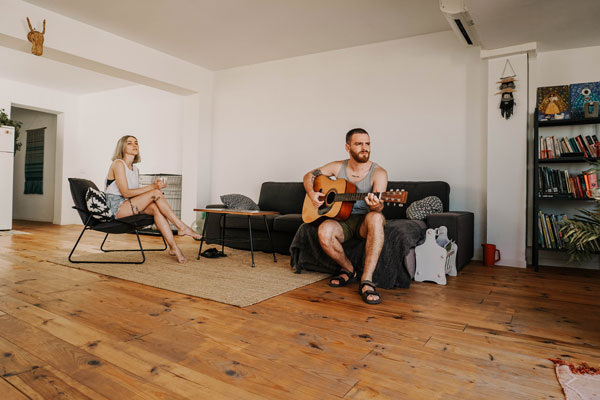 Positive Psychology and Resilience in the Time of COVID-19
Positive Psychology and Resilience in the Time of COVID-19
By Susan Paula, Ph.D.
These are difficult times. In this time of COVID-19, perhaps you’re dealing with distressing uncertainty, the illness of a loved one, financial difficulties, or the fallout from social isolation. The American Psychological Association defines resilience as the process of adapting well in the face of adversity, trauma, tragedy, threats or significant sources of stress. Positive psychology, a field of research and study developed by psychologist Martin Seligman, offers us a guide for staying resilient and maintaining psychological well-being during difficult times. The factors leading to staying resilient make up the acronym PERMA, and we can bring them into our lives, even while we’re at home practicing physical distancing.
Positive Emotions
It’s true that we’re surrounded by uncertainty and many of us are frightened right now. It’s not necessary to deny all of the difficulties surrounding us, but that doesn’t mean that we can’t also recognize the positive.
- Spring is here! If you have easy access to the outdoors, go outside and take a look at the budding trees and flowers.
- Make lemonade out of lemons – write down and appreciate what’s good about staying home. Have you been able to slow down, do more reading, catch up with friends?
- Identify what you have to look forward to once this difficult time passes. What will you do once you can see your loved ones and visit places you’ve missed?
Engagement
When we’re engaged, we feel completely absorbed by something and excited to be doing it.
- Find a new project to start while you’re home. Organize old photos, finally get to that home improvement project you’ve been thinking about, write that blog, or start recording a podcast.
- Return to or start a new hobby.
- Immerse yourself in a new author, TV show, or movie. Return to the works of an author or director that brings you comfort or inspiration.
Relationships
Take this opportunity to work on relationships.
- Deepen already good relationships.
- Reconnect with old friends or relatives.
- Repair relationships that you miss.
- Find ways to have regular contact with family, friends, and colleagues. Schedule virtual check-in’s, happy hours, and birthday parties.
Meaning
Do things that give you a sense of purpose.
- Resolve to be a better parent, partner or friend, and work at it.
- Find a cause you can contribute to with money, time, or effort from home.
- Write inspirational pieces for others.
- Feel good about staying at home because you’re doing it for the benefit of others.
Achievement
Feeling as if we’re working towards a small or large goal contributes to psychological well-being.
- Take this time to set some goals for yourself. These goals can be professional, academic, social, artistic – anything that’s important to you. Then identify the first few concrete steps that will help you achieve these goals and take the ones you can do from home.
- Get more information about achieving your goal. Do research online, start reading, take online classes, or watch instructional YouTube videos.
Susan Trachtenberg Paula, Ph.D., Director of Child and Adolescent Services, American Institute for Cognitive Therapy, is a New York State licensed psychologist with extensive experience in cognitive behavior therapy (CBT), dialectical behavior therapy (DBT), couples therapy, and family therapy. Dr. Paula specializes in the treatment of PTSD, Borderline Personality Disorder, mood and anxiety disorders, ADHD, and behavior problems in children.

 Positive Psychology and Resilience in the Time of COVID-19
Positive Psychology and Resilience in the Time of COVID-19